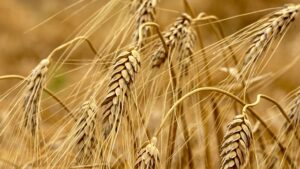Without adaptation to changing circumstances, a dark future awaits Hungarian agriculture
Although EU experts are predicting better crop yields across Europe, farmers in Hungary – but also in eastern Slovenia and northern Croatia – are facing increasingly serious problems due to the prolonged lack of rainfall. Adaptation is the key, but it is important not only for crop growers but also for livestock farmers to adapt to changing conditions.
 The European Commission’s forecast for the end of June 2025 showed better yields for wheat, maize and sunflower compared to the average of the past five years, but this estimate was still based on data from late May and early June, but unfortunately the rainfall situation has deteriorated significantly since then. “Hungary is currently experiencing a nationwide drought, with practically no significant precipitation anywhere from Transdanubia to Transtişoara. If there is no rain in the next period, the low point in corn yields in 2022 could even be repeated,” warned Zoltán Demeter, head of K&H’s agricultural business, adding: more than half of the crop was lost then, and a similar decline could be threatened now.
The European Commission’s forecast for the end of June 2025 showed better yields for wheat, maize and sunflower compared to the average of the past five years, but this estimate was still based on data from late May and early June, but unfortunately the rainfall situation has deteriorated significantly since then. “Hungary is currently experiencing a nationwide drought, with practically no significant precipitation anywhere from Transdanubia to Transtişoara. If there is no rain in the next period, the low point in corn yields in 2022 could even be repeated,” warned Zoltán Demeter, head of K&H’s agricultural business, adding: more than half of the crop was lost then, and a similar decline could be threatened now.
The situation is somewhat better at the regional level, with the weather having a positive impact on the crop in Poland and Romania, with record yields predicted for autumn-sown cereals in the latter country, for example. In the Czech Republic, Austria and Slovakia, there was a lot of precipitation in May, which improved soil moisture – in contrast to our country. In the case of autumn-sown cereals, yields are forecast to be around the five-year average, while those of spring and summer crops are also expected to fall short of the five-year average by about 5 percent. In eastern Slovenia, the upper layers of the soil are dry, so yield expectations for autumn-sown crops have also been reduced there, while in Croatia, yields are predicted to be slightly above the five-year average.
The worsening situation requires adaptation
The agricultural expert highlighted that the situation is not unique, but is due to the increasingly frequent and extreme effects of climate change. “We cannot postpone the transformation of the structure of domestic agriculture any longer. We must spread soil cultivation, water conservation and precision farming solutions that can reduce the extent of damage even in extreme years,” he stressed.
Not only crop production, but also animal husbandry technologies require modernization, especially in order to prevent heat stress and epidemics. In addition, the food industry also needs to increase the proportion of highly processed products, so that Hungary is not only an exporter of raw materials, but can demonstrate more stable, higher value-added production. This will allow it to grow into a more profitable industry, which will also increase its financial resilience in difficult years. This is also facilitated by the investments under Pillar 2 of the Common Agricultural Policy (CAP), with interest-subsidized schemes. The receipt of supporting documents for the small animal farm tender is expected in July, followed by decisions on large food industry tenders.
Related news
K&H: hybrids have tripled, electric cars are on the rise, but gasoline cars play the main role
🎧 Hallgasd a cikket: Lejátszás Szünet Folytatás Leállítás Nyelv: Auto…
Read more >K&H: this is how you will have a digital vault in your pocket
🎧 Hallgasd a cikket: Lejátszás Szünet Folytatás Leállítás Nyelv: Auto…
Read more >Related news
MBH Analysis Center: The Hungarian economy may accelerate again in 2026, but the Iranian war carries serious risks
🎧 Hallgasd a cikket: Lejátszás Szünet Folytatás Leállítás Nyelv: Auto…
Read more >Focus on the domestic fishing sector at SIRHA Budapest
🎧 Hallgasd a cikket: Lejátszás Szünet Folytatás Leállítás Nyelv: Auto…
Read more >Together for the future: dm supports projects that also offer opportunities for volunteer work with 50 million forints
🎧 Hallgasd a cikket: Lejátszás Szünet Folytatás Leállítás Nyelv: Auto…
Read more >









